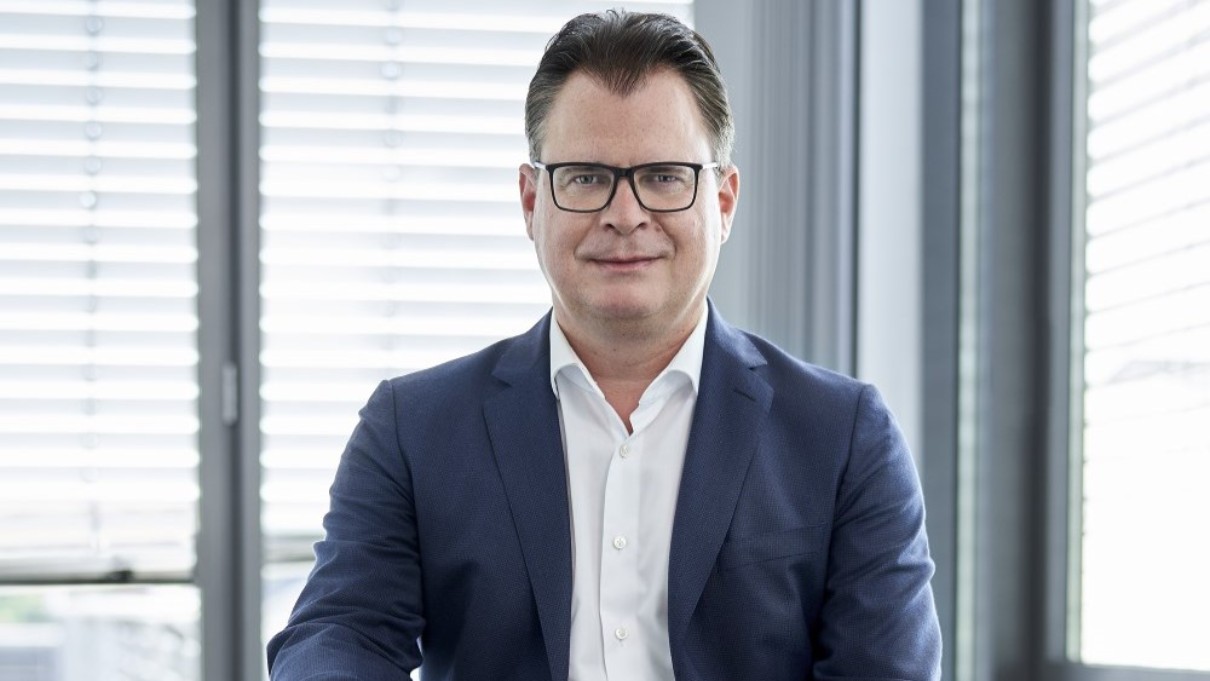Page content
When hospital IT comes to the patient

Winfried Post, General Manager and CEO of Dedalus HealthCare DACH.
For those interested in electronic medication and cross-sectoral patient management, a visit to Dedalus will be worthwhile, too. Winfried Post, General Manager and CEO of Dedalus HealthCare DACH, reveals what else DMEA 2023 will have in store and why he is very optimistic about the near future.
The Pandemic and Hospital Future Act (KHZG) has given hospital IT in Germany a boost. Dedalus is one of the largest suppliers of hospital information systems (HIS) to German-speaking countries. How has your business evolved since the last DMEA?
In Germany, the Hospital Future Act with its many required applications continues to be the main topic. Without the Hospital Future Act, we would not be witnessing many of the investment projects now under way. However, the Hospital Future Act projects are not everything. The situation regarding HIS installations and HIS calls for tender is also in flux. In Germany, we currently have 815 hospitals operating our ORBIS hospital information system, 15 more than a year ago. And that number will increase noticeably in the years to come when hospitals currently running systems that will soon be obsolete, require upgrading.
You are talking about SAP’s announcement that it will no longer supply proprietary invoicing software which will also impact SAP-based hospital workplace systems. What is the story with your customers? Can you offer an alternative for those operating SAP IS-H?
This discussion has been ongoing for some time. To some extent we saw it coming and a few years ago, we therefore developed completely new invoicing software for Germany. We have installed full invoicing software at over 700 hospitals running ORBIS in Germany. Only around 35 of them use IS-H from SAP, mainly university hospitals. In these cases, we are in concrete discussions as to how we can meet their needs. Overall, it was a very wise decision to develop our own invoicing software. We are currently considering whether to design full invoicing software for our customers in Austria and Switzerland. Whatever happens, it will result in a consolidation of the HIS landscape from which Dedalus will profit.
What topics will you focus on at DMEA 2023?
Our main topic will be ORBIS U, our latest-generation hospital information system. That is something we had already begun at Agfa, but which only received large investment after we joined Dedalus in May 2020. We have over 400 developers working on it in German-speaking countries alone. ORBIS U is web-based and our product philosophy is highly focused on workflows. At DMEA, we will not just be showing individual modules but the entire operating cycle. There are a lot of trials taking place at Asklepios-Klinik in Langen, which acts as a reference point. We are positioning ORBIS U as an attractive option for hospitals requiring HIS orientation.
What else is there beyond the HIS business? For whom will visiting the booth at DMEA be worthwhile?
Medication and pharmacotherapeutic safety (AMTS) will be a big topic at our booth. Since taking over the medication specialist Dosing in May 2021, we have established our own pharmaceutical drug database which is now integrated in ORBIS and which the first customer is now using. We will also be setting up a unit dosage machine on our stand. With it, we will be able to demonstrate the entire medication loop at DMEA – from prescriptions to pharmacotherapeutic safety checks to drug dispensing in individual blister packs. That is something worth coming to see. We also have new things in many other areas. Based on U technology, we are developing a new radiology information system (RIS) which we will be first put into service at Kantonsspital St. Gallen in 2024. We will also be showing the ix.connect cloud application, a networking solution for outpatient laboratories. Indeed, networking and cross-sectoral communication will be another important focus at DMEA.
Dedalus is occupied on several fronts as regards to cross-sectoral applications. What exactly can you offer hospitals who want to network with others?
Our Patient XCare Suite portal solution is the best way forward, a comprehensive patient portal fully powered by ORBIS U technology. It can function as an ORBIS U module or on its own, i.e. in hospitals where ORBIS HIS is not installed. When operating as a module, it makes use of the same database as the HIS, so no interfaces are necessary. Our CareBridge discharge management solution is the ideal companion to our patient portal. This is a joint venture with Asklepios, of which we own 74.9 percent. CareBridge naturally will have its own booth at DMEA. The software makes it possible to manage all aspects of post-inpatient care. Here, we are exiting the inpatient sector as it was and reach out to the patient with our portals.
CareBridge and some other tools are cloud applications already. Will the hospital workplace system also migrate to the cloud sooner or later?
That is certainly a fascinating topic, and indeed, we are already in the cloud with CareBridge, with our ix.mid portfolio for laboratories and the voice recognition we currently employ. In regard to the HIS, the entire web-based ORBIS U system is cloud-ready. Here, the question is rather whether all the regulations are in place and whether hospitals really want it. I think the last word has yet to be spoken there, but we are closely monitoring the situation.


